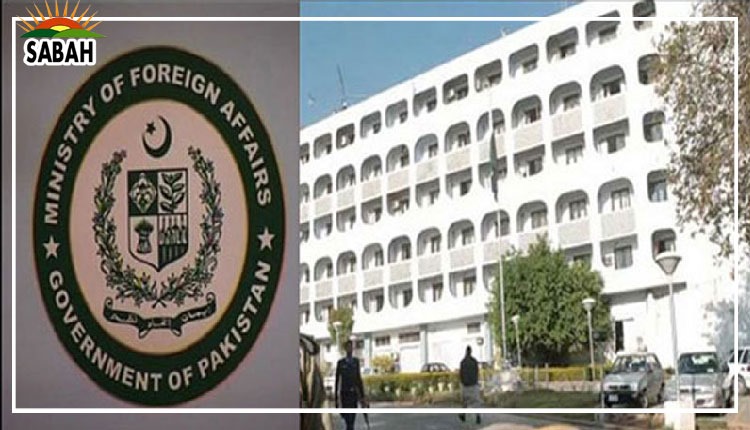Formalising Pak-Afghan relations…Adeela Naureen/Waqar K Kauravi
The relations between Pakistan and Afghanistan have hardly seen a comfort zone in at least past five decades. Despite the hopes that the American withdrawal from Afghanistan would usher in an era of peace along the Pak Afghan border, things have remained all the same. And there is reason for it: Pakistan has been taken for granted by the successive Afghan governments. There is a need to highlight challenges faced by both countries and turn these into opportunities through effective mechanism and border control.
The idea of strategic depth has been reversed, as Pakistan has now become a strategic depth for Afghanistan. It is a fallback territory for millions of Afghans. An estimated 2.5 million to 3 million Afghans have taken refuge in Pakistan. The number includes almost a million illegal immigrants. Pakistan has always opened its heart and gates to Afghan brothers and sisters and has never abandoned them in times of distress.
Pakistan has become the main source of foreign exchange reserves for Afghanistan and an estimated 5 million dollars are daily siphoned from Pakistan to Afghanistan through smuggling. Pakistan-produced food grain, sugar, artificial manure, cement and host of other commodities are smuggled to Afghanistan by mafias. This illegal and criminal empire has turned Pak-Afghan border into a Pak-Afghan Mafia Corridor.
While Punjab and Sindh have become base of this corridor, KP and Balochistan are strategic crossing points. Law enforcement agencies, federal and provincial bureaucracy, border control apparatus including their officials, Customs department and mafia dons in Punjab and Sindh have established an evil empire which is gnawing at the roots of Pakistan. This evil empire and Pakistan cannot co-exist, and one side has to perish.
Pakistan is a 1.5 trillion-dollar economy by purchasing power parity index and we are begging for crumbs from our friends. This arrangement is not only unsustainable but disastrous. Pakistan as a state will melt down in a decades time if the rot is not stemmed immediately, irrespective of the cost. With smuggling networks, the terrorist outfits find it very convenient to expand their space. No wonder the crackdown on dollar and sugar mafia has witnessed a blowback from terrorist outfits and we see an increase in number of terror attacks.
Afghanistan considers Pakistan as favourite trade destination and there is a need to formalise the trading network for enhancing mutually beneficial connectivity projects. Pakistan and Afghanistan should also understand that in the era of geo-economics and regional and global connectivity, energy and infrastructure projects like TAPI, Trans-Afghan Railway, mining of strategic minerals, Chitral-Badakhshan Link, etc are for the mutual benefit of both countries.
Successful execution of energy and trade projects in Afghanistan will bring prosperity in Pakistan and Afghanistan together. Completion of CPEC/BRI projects in Pakistan will offer shortest trade route to Afghan traders, offer opportunities for export of Afghan goods as well as minerals globally and bring more dividends to the people of Afghanistan. Actually, in short- and medium-term, Afghanistan will get the maximum benefit with the success of mining and connectivity projects
Pakistan is critical to trade for Afghanistan: it provides ease of business on cheaper terms; it is still the biggest importer of Afghan coal with daily import of 25000 tons; Afghan exports to Pakistan have reached $1.2 billion whereas Pakistans exports to Afghanistan are at $346.5 million.
Due to Indias peace spoiler role in Afghanistan, both Pakistan and Afghanistan have suffered in terms of security. RAWs support to terrorist organisations such as ISKP, TTP, NDS and its role in creating instability in Afghanistan is a case in point.
India has proven to be an unreliable partner for Afghans. It has executed various projects in Afghanistan with heinous agenda; has refused visa to more than 3,500 Afghan students; and demonstrating anti-Islam policies, besides carrying out severe human rights violations against Muslims in mainland India as well as Occupied Kashmir. Indias ambitious design for opening consulates in Kandahar and Jalalabad are for ulterior motives and against the interest of both countries.
Internally ISKP and other international terrorist organisations in Afghanistan are a threat to the stability, security and prosperity of Afghanistan and the region. TTP is playing a double game with TTA in the context of its contact with ISKP; mid and lower tiers of ISKP and TTP fighters have a soft corner for each other. TTP is actively collaborating with ISKP. The nexus between the two dates back to 2015 when TTP Commander Hafiz Saeed (known for his Salafi tendencies) became the ISKPs first Emir.
ISKPs rivalry against TTA is based on different ideologies and objectives. TTP is also following ISKP policies and cannot be sincere with the Interim Afghan Government or the TTA. ISKP public messages continue to reveal a soft spot for TTP fighter. ISKP seeks to ignite sectarian war in Afghanistan, splinter the TTA and cut its external economic resources and diplomatic support. ISKP-led attacks on Chinese and Russian assets in Kabul are a part of its broader agenda.
The rumours about US bases in Pakistan are totally false. However, US bases exist in other regional Muslim countries. Pakistan does not have agreement with the US on drone operations or any strikes within the region. In any case, the Russia-Ukraine War has diverted the attention of the western block away from conflicts in West Asia and Middle East.
Through intelligence sharing between Pakistan and Afghanistan, elements working against peace and development of both countries can be identified and countered. Thus, secure borders are in the interest of peace in both countries. Border fencing by Pakistan authorities is beneficial for both countries and will assist in improving the security situation.
Security along the Pak-Afghan border has been a sour point, irrespective of the change in regimes within Afghanistan. Kabul has to walk the talk and should not allow use of the Afghan soil for anti-Pakistan activities and terrorism. In this regards, recent statements by senior Afghan officials are encouraging. Bottom line is that peace in Afghanistan means peace in Pakistan and vice versa. Prosperity and security of both Pakistan and Afghanistan are mutually dependent; bilateral cooperation can facilitate effective control on terrorist groups and non-state actors.
Courtesy The Express Tribune












